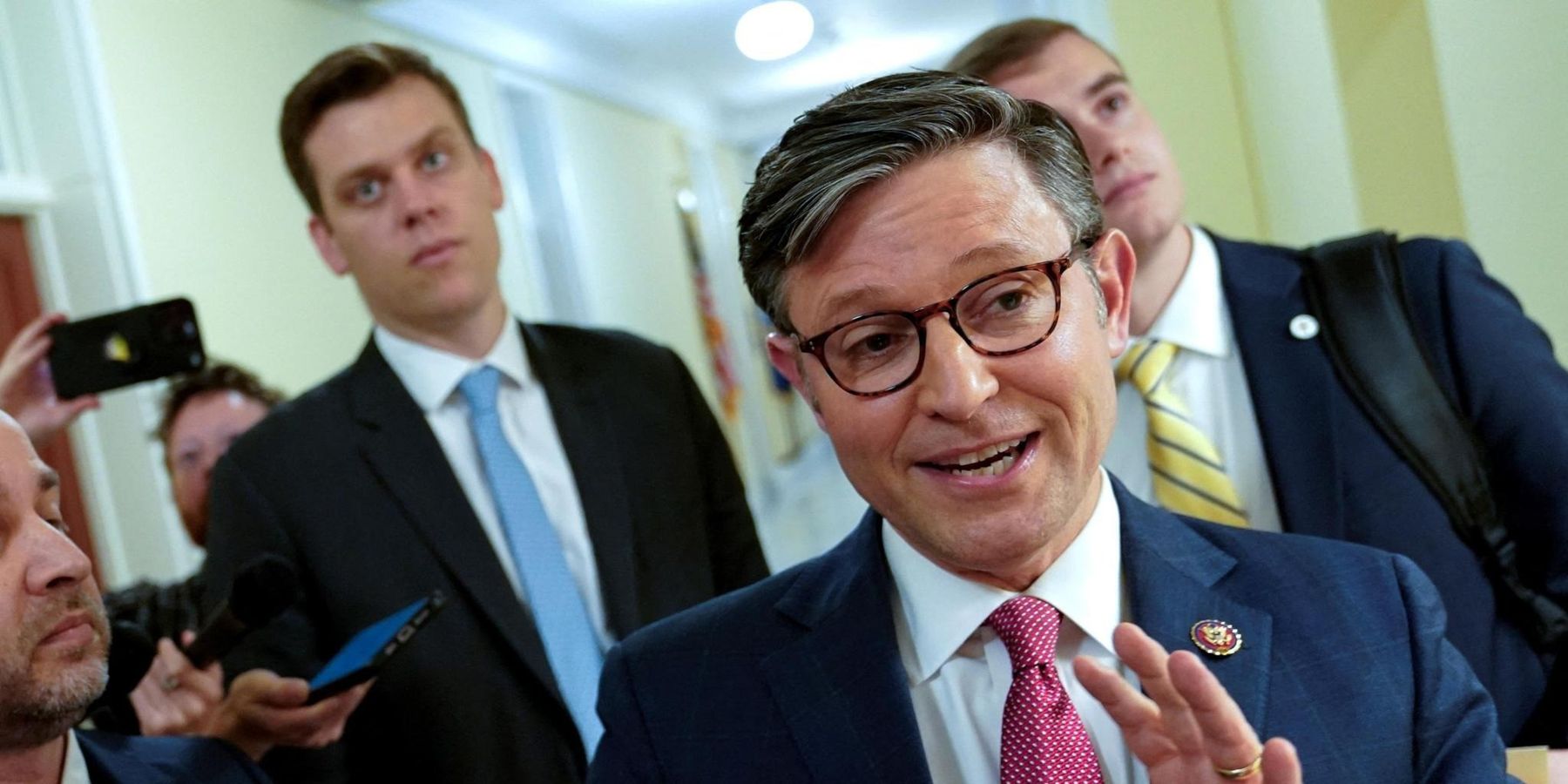The search for a new House Speaker finally concluded on Wednesday with the fourth Republican caucus nominee Rep. Mike Johnson (R-La.) prevailing on the floor, earning the vote of every GOP member.
No doubt, the first major issue facing the House right now is President Joe Biden’s emergency spending bill, which includes $60 billion for Ukraine and $14 billion for Israel.
The new Speaker has not commented on how will approach the massive funding bill. When asked about it on Tuesday evening after emerging as the Republican nominee, he told reporters that he was “not doing policy tonight.”
A legislative plan that Johnson circulated two days before clinching the Speakership names support for Rep. Mike McCaul’s (R-Texas) resolution condemning Hamas as a top priority, but he does not mention the funding package. However, Rep. Ken Buck (R-Colo.) said on CNN that it was his “understanding” that Johnson was willing to bring the legislation to the floor.
While sending more aid to Ukraine has proven a key sticking point among Republicans in a series of Congressional debates in recent months, Johnson has not been outspoken on either side of the issue. In the weeks following Russia’s invasion, Johnson supported “debilitating sanctions” on Moscow and posted on X that “America stands with Ukraine.”
However, by May 2022, Johnson was one of only 57 members to vote against the first tranche of $40 billion in supplemental aid to Ukraine. He released a statement saying, “‘We should not be sending another $40 billion abroad when our own border is in chaos, American mothers are struggling to find baby formula, gas prices are at record highs, and American families are struggling to make ends meet, without sufficient oversight over where the money will go.”
He has consistently opposed aid for Kyiv since then. His voting record has earned him an “F” grade in Bill Kristol’s GOP Congressional Report Card.
Meanwhile, the packaging of Israel and Ukraine into one bill has been a divisive question in the Republican caucus, including some who are strong supporters of funding Tel Aviv and Kyiv individually.
Nine Republican Senators, led by Rick Scott (R-Fla.) and Roger Marshall (R-Kan.) wrote a letter to Senate leadership last week urging them to consider the issues of funding for Tel Aviv and Kyiv separately.
“These are two separate conflicts and it would be wrong to leverage support of aid to Israel in attempt to get additional aid for Ukraine across the finish line,” the Senators write. “Furthermore, it would be irresponsible and we should not risk a government shutdown by bundling these priorities together and thus complicating the process and lessening the likelihood of a funding package.”
The letter also notes that “22 Members of the U.S. House of Representatives wrote to the then-leading candidates to be the next Speaker of the House urging them to deny attempts to couple these issues.” The House members who have been opposed to linking the two issues will likely seek to exert similar pressure on Johnson.
Many Republicans with similar voting records as Johnson have adopted more aggressive rhetoric than he has toward Ukraine and Biden’s strategy. Given that he — like the rest of the GOP conference — has expressed unequivocal support for Israel — Johnson may be willing to bring the combined package up to a vote.- GOP hawks slam Biden, say he has ‘no strategy’ for Ukraine ›
- Aid for Israel and Ukraine is not an American jobs program - Responsible Statecraft ›
- New Speaker Johnson: Vote on separate $14.3B Israel aid bill this week - Responsible Statecraft ›
- White House to Congress: Foreign weapons funding is all about US jobs - Responsible Statecraft ›
- None ›
- Ukraine, Israel & Taiwan aid now heads to a fractured House | Responsible Statecraft ›
- Would House approve ‘loaning’ rather than giving Ukraine aid? | Responsible Statecraft ›
















